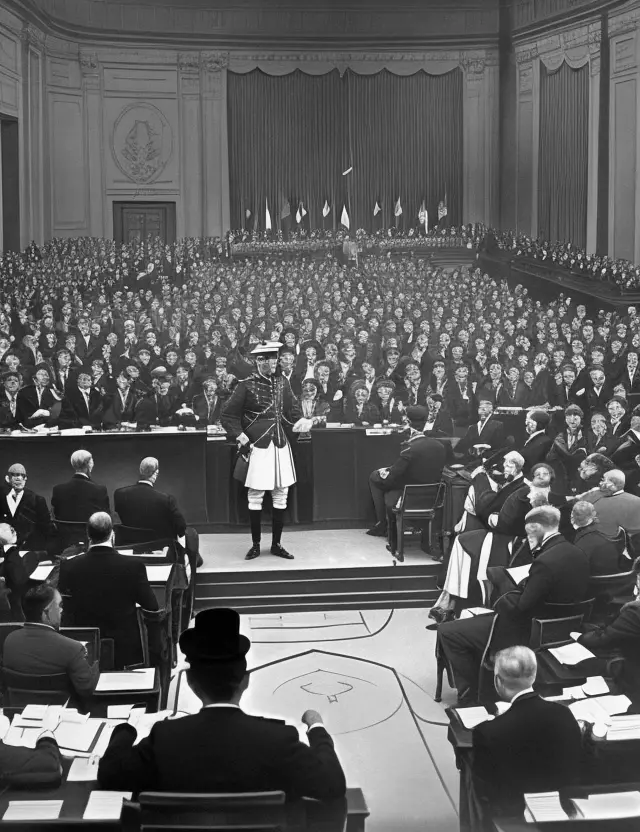Paris Peace Conference Commencement
January 18, 1919

Paris Peace Conference Commencement
On January 18, 1919, the Paris Peace Conference commenced, marking a historic event that set the stage for diplomatic negotiations aimed at formally concluding World War I. The conference played a crucial role in shaping the post-war order and addressing the aftermath of the devastating conflict.
Negotiations and Treaties
The Paris Peace Conference brought together representatives of the victorious Allied powers to negotiate peace terms with the defeated Central Powers. One of the most significant outcomes of the conference was the negotiation of the Treaty of Versailles, which dealt specifically with Germany and had far-reaching consequences for the entire world.
Treaty of Versailles
The Treaty of Versailles, signed on June 28, 1919, officially ended the state of war between Germany and the Allied powers. It imposed heavy penalties on Germany, including territorial losses, disarmament, and reparations. The treaty's terms had profound and lasting effects on the geopolitical landscape and contributed to the complex dynamics that eventually led to World War II.
Global Impact
Beyond the Treaty of Versailles, the Paris Peace Conference resulted in the negotiation of several other treaties with different Central Powers. The conference addressed issues such as border changes, the creation of new nations, and the establishment of the League of Nations, a precursor to the United Nations.
Legacy and Lessons
The Paris Peace Conference and the treaties it produced left a lasting legacy, shaping the course of international relations and influencing the geopolitical landscape of the 20th century. The conference also highlighted the complexities of post-war diplomacy and the challenges of achieving a lasting and just peace.
Commemorating January 18, 1919
January 18, 1919, serves as a pivotal date in diplomatic history. As we commemorate the commencement of the Paris Peace Conference, we reflect on the lessons learned from the post-war negotiations and their impact on global affairs.



